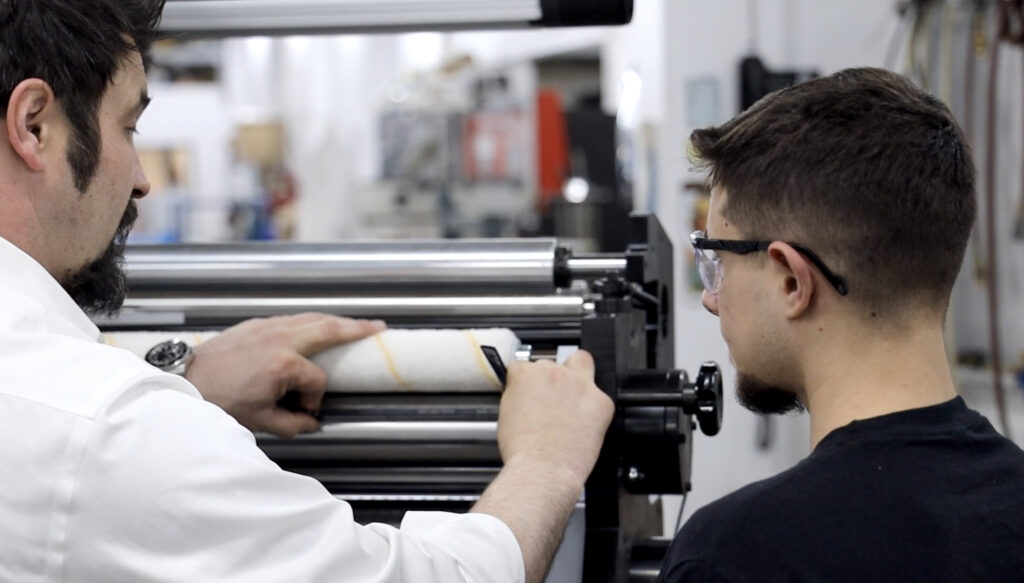Accurate and efficient logistics management is critical for every type of business no matter the industry. Managing products, services, and information efficiently is critical for success. This is true in all markets, particularly in healthcare and pharmaceuticals. Pharmacists must utilize effective pharmaceutical inventory management methods as well as find innovative ways to provide critical consumer information.
Integrated labels have emerged as a crucial tool in enhancing logistical operations, proving particularly valuable in many sectors, including many healthcare applications. These labels combine multiple functionalities into a single, streamlined document, reducing waste, saving time, and providing many additional benefits.
What Are Integrated Labels?
Integrated labels are multifunctional tools that merge one or more adhesive labels with additional printed information on a single sheet. This ingenious combination can include a mix of shipping labels, packing lists, invoices, prescription information, and much more. The key benefit of using integrated labels is their ability to consolidate critical information, which simplifies processes, minimizes errors, and enhances logistical efficiency. Partnering with an experienced integrated label equipment manufacturer can help printing companies responsible for delivering high quality, integrated labels to meet their customer demands.
How Integrated Labels Help the Pharmaceutical Industry
Integrated labels play a crucial role in the pharmaceutical industry due to their ability to streamline operations, enhance patient safety, and ensure regulatory compliance. Here are several key reasons why integrated labels are indispensable in this sector:
1. Enhanced Accuracy and Efficiency in Pharmaceutical Inventory Management
In the pharmaceutical industry, accurate pharmaceutical inventory management is vital not only for business operations but also for patient safety. Integrated labels facilitate precise tracking of medications from the point of manufacture to dispensing.
These labels can incorporate barcodes or RFID tags that interact with inventory management systems, allowing for real-time updates and accurate stock levels. This precision helps in avoiding overstocking or understocking, which can be costly and potentially dangerous if critical medications are unavailable when needed.
2. Critical Consumer Information Delivery
Integrated labels are essential for providing comprehensive drug information to patients, which is a regulatory requirement in many jurisdictions. These labels ensure that each medication includes easy-to-understand patient information on dosage, side effects, and contraindications directly on the packaging. By integrating this information with the product label, pharmacies enhance patient comprehension and adherence to treatment regimens, contributing to better health outcomes.
3. Streamlined Pharmaceutical Tracking and Compliance
Tracking pharmaceuticals through the supply chain is critical for safety and compliance with government regulations, such as the Drug Supply Chain Security Act (DSCSA) in the United States. Integrated labels make it possible to encode lot numbers, expiration dates, and other crucial tracking information directly onto the drug packaging. This practice not only helps in maintaining the integrity of the supply chain but also facilitates quick recalls of medications if necessary.
4. Reducing Errors and Enhancing Patient Safety
Medication errors can be life-threatening. Integrated labels help reduce these errors by ensuring that all pertinent information is printed clearly and adhered directly to the medication packaging. This direct application minimizes the risk of a label being mismatched with its corresponding medication, which can happen with labels that are applied manually. Furthermore, the adhesive part of the label ensures that it remains affixed to the container, reducing the risk of loss or misidentification.
5. Customization and Flexibility
The pharmaceutical industry requires a high degree of customization due to the varied nature of medications and their uses. Integrated labels can be tailored to fit specific containers, include branded elements, and carry unique patient instructions or warnings. This customization capability ensures that all necessary information is conveyed clearly and effectively, tailored to each medication’s requirements.
6. Cost-Effectiveness and Environmental Benefits
By combining multiple pieces of information onto a single label, integrated labels reduce the need for multiple separate labels, which simplifies the labeling process and reduces material costs. Additionally, because fewer resources are consumed in the production of integrated labels, there is a reduced environmental impact compared to using multiple labels and additional paper products.
Integrated labels provide the pharmaceutical industry with a powerful tool to enhance efficiency, accuracy, safety, and regulatory compliance. They are indispensable for ensuring that pharaceutical inventory management is properly tracked, labeled, and accompanied by essential patient information, all of which are crucial for the effective and safe distribution of pharmaceuticals. With their ability to streamline processes and reduce errors, integrated labels not only support the operational goals of the pharmaceutical industry but also significantly contribute to patient safety and care.
Tamarack’s P500 Inline on Flexo Press Integrated Labeling Equipment
Tamarack Products is at the forefront of integrated label technology with its P500 Inline on Flexo Press Integrated Labeling Equipment. This state-of-the-art machinery is designed to enhance the production of integrated labels, offering features that ensure efficiency, precision, and flexibility.
Key Features of the Tamarack P500:
High-Speed Integration: The P500 can operate at speeds up to 500 feet per minute, making it ideal for high-volume environments that demand efficiency.
Precision Placement: The machine guarantees precise placement of labels with an accuracy of ± 1/64 inch, ensuring that every label is correctly positioned for optimal readability and adherence.
Customization and Flexibility: The P500 allows for extensive customization, enabling pharmacies to tailor their label sheets to specific needs, from varying label sizes to additional printable features.
Integrated labels play a pivotal role in enhancing operational efficiencies, particularly in sectors where precision is crucial, such as pharmaceuticals. By simplifying the documentation process and ensuring accurate information dissemination, integrated labels not only streamline workflows but also improve patient care.
Tamarack Products offers advanced solutions for integrated labeling needs with the P500 Inline on Flexo Press Integrated Labeling Equipment. To learn how our technology can benefit your operations, or to explore customization options tailored to your needs, contact us today. Let us help you streamline your processes and elevate your business efficiency.





